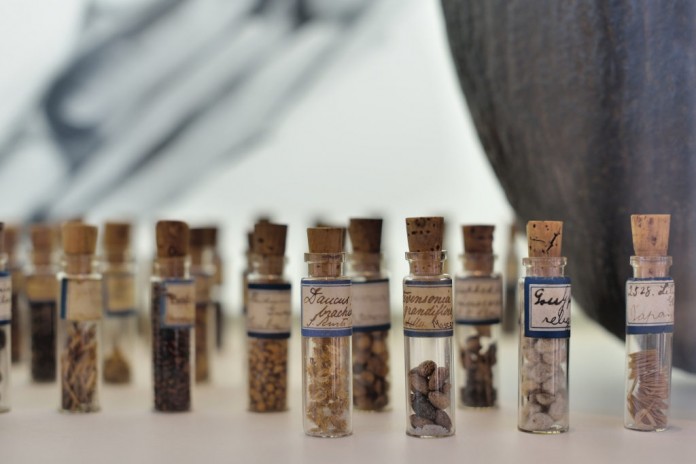Once the calendar turns to a new year, gardeners like to think about their spring gardens. Now is a perfect time to sit down with the seed catalogs you’ve ordered and figure out what you want to plant this year.
One advantage to ordering from seed catalogs is that the selection is usually wider than in stores. However, you still need to pay attention to the details of each seed so that you order the best plants for optimal garden performance. Farm and Dairy online columnist Ivory Harlow also offers some information about seed terminology, like hybrid and heirloom varieties.
Seed catalog terms
If you’re a beginning gardener or aren’t familiar with a lot of gardening terms, the University of Illinois Extension breaks down some words you’ll likely come across in seed catalogs.
Penn State Extension has additional information about reading seed catalogs, including lettering that denotes hybrids, open-pollinated and disease resistance.
Seed ordering tips
Everyone’s garden is different. Before you order seeds, keep these tips in mind:
- Order early. To ensure that you get the seeds you want, don’t wait to order. Some seed catalogs warn customers that new varieties tend to sell out quickly, so keep that in mind, too.
- Map out your garden. Have a rough estimate of your entire garden space. This will help you determine how many seeds you need to order.
- Pay attention to hardiness zones. One of the most important details about choosing seeds is knowing your hardiness zone. Find out which hardiness zone you’re located in and make sure you choose seeds that are known to perform well in that climate. For instance, if you live in northeast Ohio, your hardiness zone could be 5b, 6a or 6b, depending on your exact location. Even certain counties have more than one hardiness zone. The USDA hardiness zone map can be accessed here.
- Know your soil type. Before you plant, have your soil tested. That way, you’ll know how to amend your soil for better plant growth.
- Keep your garden location in mind. Maybe you have a traditional plot garden, or maybe you garden in containers. Either way, this will influence your seed selections.
- Think about sunlight requirements. Just like your garden’s location, sunlight amounts will affect your plants. Some plants are full sun, some are part sun and others are full shade. Plan according to the amount of sunlight you have available, and according to the vegetables, herbs and flowers you want to grow.
- Consider days to maturity. All seeds have information about ‘days to maturity,’ meaning how long the seed will take to grow into a fully mature plant. You’ll have to plan around frost dates.
Be sure to check with your local Extension for your area’s recommended varieties.
Fortunately, there is a plethora of information available today about different types of seeds and where they grow best. Choose accordingly. If you have your heart set on growing a particular variety of tomatoes, but know that your garden doesn’t get enough sunlight, look for a similar variety that fits your garden. Or, if possible, consider growing in containers where sunlight amounts are different and plants can be moved around.
Seed catalogs
There are numerous seed catalogs to order from. While this is not an extensive list, many more can be found online. Consider these five:
Burpee — Burpee offers vegetable and flower seeds, as well as both open-pollinated and hybrid varieties.
Johnny’s Selected Seeds — Johnny’s Selected Seeds offers vegetable, herb, flower, farm and fruit seeds. The company’s seeds are certified organic. You can view the 2016 Johnny’s Selected Seeds catalog online here.
Urban Farmer — Urban Farmer’s seeds are produced on its Westfield, Indiana, farm. The company asserts that all seeds are non-GMO and not genetically engineered. Vegetable, herb and flower seeds are available.
Park Seed Co. — Park Seed Co. has a “Superior Germination Guarantee” and also sells non-GMO seeds. The company’s e-catalog can be viewed here.
Harris Seeds — Harris Seeds sells a variety of seeds, and does not sell any GMO seeds.
Related:
- January’s gardening to-do list
- How to choose heirloom seeds: 5 tips
- Choose the best seed for your garden
- Swapping seeds? There’s a law for that
- How to understand USDA hardiness zones
- Get an early start on the spring garden
- This season’s seed, next season’s harvest: A seed-saving primer
- Tomato cultivars for Ohio gardens















Sadly, the listing of seed companies is arrogantly and deceptively posted. Extremely FEW seeds are ‘GMO’ seed, virtually none of which are planted in gardens-the ones that have been developed are nearly all commercial grains. This greatly adds to the negative mindset of GMO developed seed and reeks of anti-GMO propaganda. There was absolutely no need whatsoever to include ANY reference to ‘GMO’ seed.
Thank you for your comment. The reference to seed companies contained information presented on their individual websites, not our opinion or endorsement of the companies.